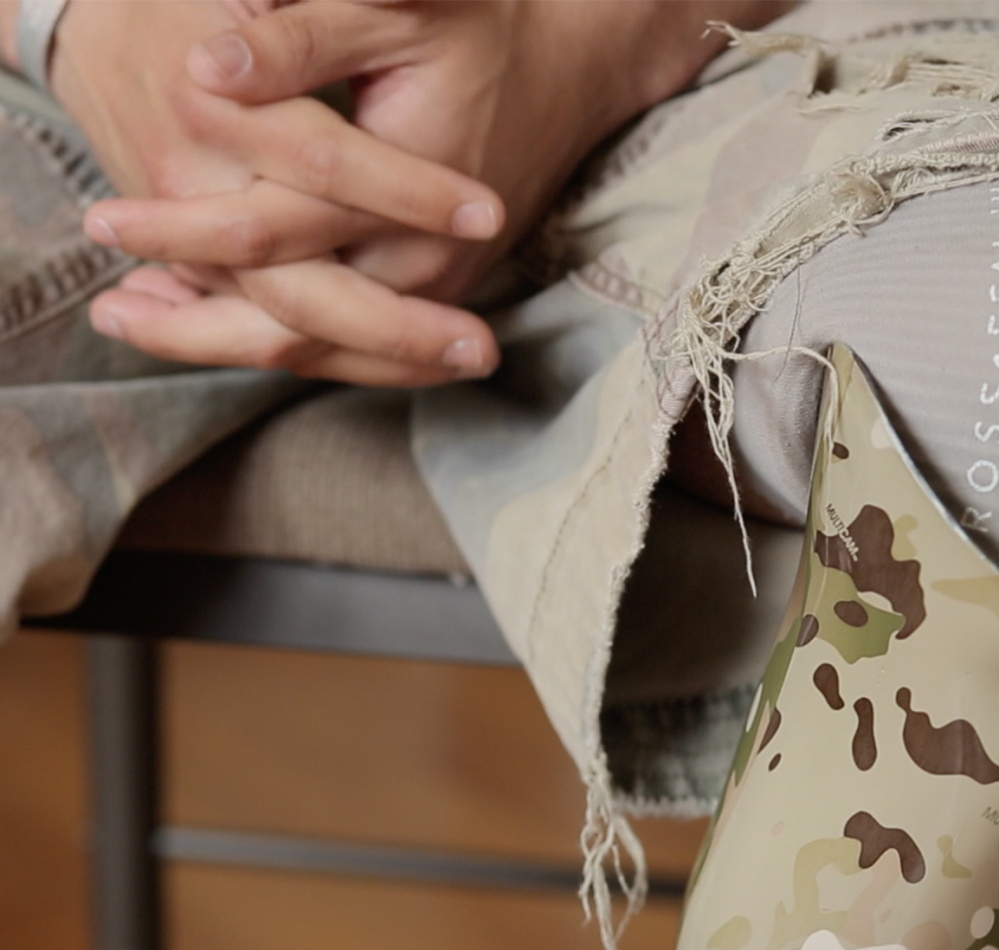AUGUSTA — Whenever I meet someone new, I attempt to steer clear of mentioning my time in the Army for as long as possible.
It’s not that I am ashamed of my military experience – far from it. It’s just that their response – invariably – is “thank you for your service.” And I never quite know how to respond.
I appreciate the sentiment, of course. And I also realize how lucky my generation of veterans is compared with Vietnam-era veterans, who were often personally blamed for the folly of that conflict. But a “you’re welcome” never feels quite appropriate.
I also take pause with the somewhat mercurial place “veterans’ issues” have taken in our current political discourse.
On the one hand, politicians are quick to don a yellow ribbon and give an impassioned Veterans’ Day speech; “supporting the troops” is often the stated rationale for increasing appropriations to the Department of Defense.
On the other hand, these same politicians never seem to acknowledge the impact their proposed cuts to national and state safety nets will have on veterans.
VETERANS MORE LIKELY TO NEED HELP
Veterans are a proud bunch – hardworking, motivated and resilient. But our time in service also exacts costs. Many of us return from deployments with scars, seen and unseen.
Compared to those who didn’t serve, veterans are more likely to have difficulty maintaining personal relationships, have an increased chance of becoming disabled and are more likely to succumb to suicide. And veterans are more likely than nonveterans to become homeless.
To a person, almost no veteran is looking for a free handout. But circumstances sometimes trump pride. And the simple fact is that veterans are more likely than nonveterans to require assistance securing the most basic necessities: food, health care and housing.
Over the past year, I’ve had the opportunity to work with the Maine Center for Economic Policy and to take a deep dive into the suite of policies that benefit Maine’s veterans. We found both good news and bad.
First, the good news. In many areas, Maine is above average – in some cases, a nationwide leader – in the benefits the state provides specifically to its veterans. Maine’s people and its policymakers are right to have pride in this accomplishment.
But these policies can also be improved. The website for the Maine Bureau of Veterans’ Services is woefully out of date and does not even include all the programs enacted by the Legislature. My generation of veterans will look first to the Internet for information about benefits, and I personally don’t believe what they find there will inspire confidence that this department is one that can serve us well.
ROOM FOR POLICY IMPROVEMENTS
But of even greater concern, there is significant room for substantive improvement on several state policy fronts. For example, the Legislature could reform Maine’s Property Tax Fairness Credit, making homeownership a more attainable goal for the state’s young veterans.
The National Guard tuition assistance program is an example of an existing program that could, with increased funding, more realistically enable Maine’s guardsmen and guardswomen to obtain a four-year degree when federal funding falls short.
And now, the bad news. Maine has repeatedly cut funding to its social welfare programs, and those cuts have fallen disproportionately on the shoulders of Maine’s veterans. I talked to some good people at Preble Street – people who work to connect veterans to social services day in, day out. Each said that because of the plethora of cuts, their jobs have never been harder.
ACTION OVER SYMBOLISM
Maine, like many other states, had to make budget cuts in the wake of the recession. But fixing some of these problems doesn’t require the state to find more money in its coffers, only for the governor to accept federal funding.
For example, an estimated 2,700 Maine veterans and 1,000 of their family members could receive health coverage with federal Affordable Care Act funds the governor has rejected.
So in the end, it is much easier for me to formulate a response to a politician’s “thank you for your service” than to the everyman’s on the street.
I am not asking for another parade or legislative proclamation. Those are fine, but I prefer action rather than symbolism. And if you sincerely wish my peers and me well, all I ask is that you do it consistently, not just when politically expedient.
If a politician wears the yellow ribbon, she must also be honest about the implications of her new budget on veteran constituents. If a state leader waxes poetic on the scourge of “welfare cheats,” I ask that he also look squarely into the cameras and admit that my brothers and sisters in arms are among those he decries.
I am not asking for any special favor. I ask only for an end to the duplicity.
Send questions/comments to the editors.



Success. Please wait for the page to reload. If the page does not reload within 5 seconds, please refresh the page.
Enter your email and password to access comments.
Hi, to comment on stories you must . This profile is in addition to your subscription and website login.
Already have a commenting profile? .
Invalid username/password.
Please check your email to confirm and complete your registration.
Only subscribers are eligible to post comments. Please subscribe or login first for digital access. Here’s why.
Use the form below to reset your password. When you've submitted your account email, we will send an email with a reset code.